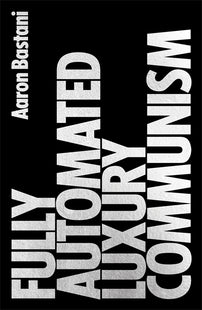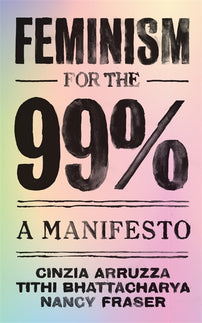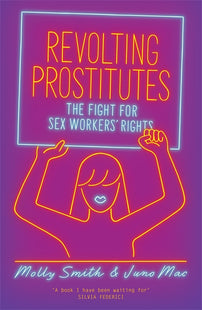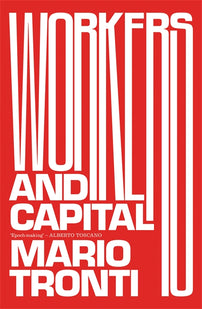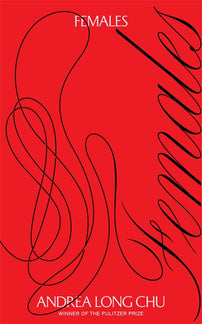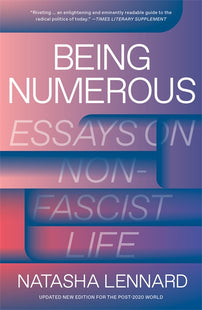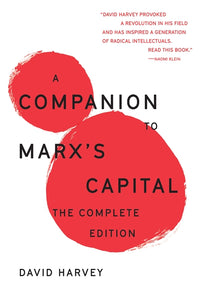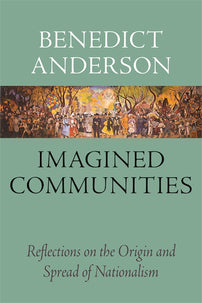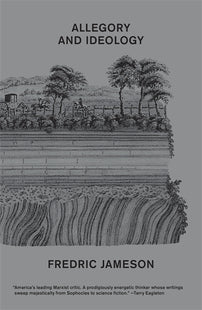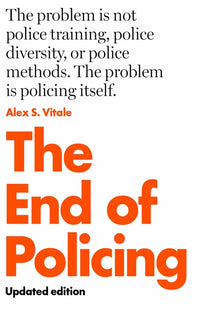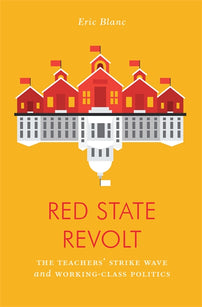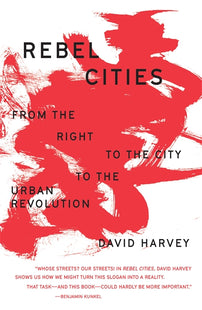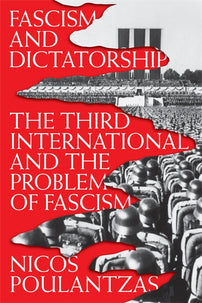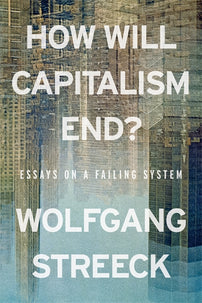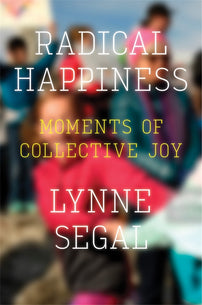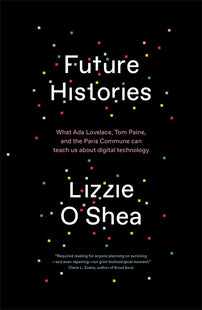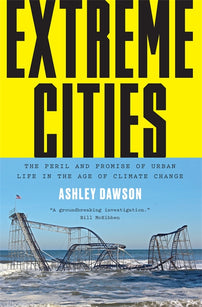Bestselling ebooks of 2019
Featuring Aaron Bastani, Nancy Fraser, James Bridle, and more.

Our bestselling ebooks of the year, featuring Sam Stein's Capital City, Ellen Meiksins Wood's The Origin of Capitalism, and Workers and Capital by Mario Tronti.
[book-strip index="1" style="buy"]In Fully Automated Luxury Communism, Aaron Bastani conjures a vision of extraordinary hope, showing how we move to energy abundance, feed a world of 9 billion, overcome work, transcend the limits of biology, and establish meaningful freedom for everyone. Rather than a final destination, such a society merely heralds the real beginning of history.
[book-strip index="2" style="buy"]Capital City explains the role of planners in the real estate state, as well as the remarkable power of planning to reclaim urban life.
[book-strip index="3" style="buy"]Unaffordable housing, poverty wages, inadequate healthcare, border policing, climate change—these are not what you ordinarily hear feminists talking about. But aren’t they the biggest issues for the vast majority of women around the globe? Feminism must focus on those at the bottom, and fight for the world they deserve. And that means targeting capitalism. Feminism must be anticapitalist, eco-socialist and antiracist.
[book-strip index="4" style="buy"]In his brilliant new work, leading artist and writer James Bridle surveys the history of art, technology, and information systems, and reveals the dark clouds that gather over our dreams of the digital sublime.
[book-strip index="5" style="buy"]An engaging, polemical romp through economic theory, computational complexity, and the history of planning, The People’s Republic of Walmart revives the conversation about how society can extend democratic decision-making to all economic matters. With the advances in information technology in recent decades and the emergence of globe-straddling collective enterprises, democratic planning in the interest of all humanity is more important and closer to attainment than ever before.
[book-strip index="6" style="buy"]In The Origin of Capitalism, a now-classic work of history, Ellen Meiksins Wood offers readers a clear and accessible introduction to the theories and debates concerning the birth of capitalism, imperialism, and the modern nation state.
[book-strip index="7" style="buy"]By taking popular culture seriously as an object of study—whether it was film, music, ideas, or consumerism—the Frankfurt School elaborated upon the nature and crisis of our mass-produced, mechanised society. Grand Hotel Abyss shows how much these ideas still tell us about our age of social media and runaway consumption.
[book-strip index="8" style="buy"]How Europe Underdeveloped Africa is an ambitious masterwork of political economy, detailing the impact of slavery and colonialism on the history of international capitalism. In this classic book, Rodney makes the unflinching case that African “mal-development” is not a natural feature of geography, but a direct product of imperial extraction from the continent, a practice that continues up into the present.
[book-strip index="9" style="buy"]In Revolting Prostitutes, sex workers Juno Mac and Molly Smith bring a fresh perspective to questions that have long been contentious. Speaking from a growing global sex worker rights movement, and situating their argument firmly within wider questions of migration, work, feminism, and resistance to white supremacy, they make clear that anyone committed to working towards justice and freedom should be in support of the sex worker rights movement.
[book-strip index="10" style="buy"]Nick Estes traces traditions of Indigenous resistance that led to the #NoDAPL movement. Our History Is the Future is at once a work of history, a manifesto, and an intergenerational story of resistance.
[book-strip index="11" style="buy"]Workers and Capital is universally recognised as the most important work produced by operaismo, a current of political thought emerging in the 1960s that revolutionised the institutional and extra-parliamentary Left in Italy and beyond. In the decade after its first publication in 1966, the debates over Workers and Capital produced new methods of analysis and a new vocabulary for thousands of militants, helping to inform the new forms of workplace, youth, and community struggle.
[book-strip index="12" style="buy"]Much has been written on how colonized peoples took up British and European ideas and turned them against empire when making claims to freedom and self-determination. Insurgent Empire sets the record straight in demonstrating that these people were much more than victims of imperialism or, subsequently, the passive beneficiaries of an enlightened British conscience—they were insurgents whose legacies shaped and benefited the nation that once oppressed them.
[book-strip index="13" style="buy"]Females is Andrea Long Chu’s genre-defying investigation into sex and lies, desperate artists and reckless politics, the smothering embrace of gender and the punishing force of desire.
[book-strip index="14" style="buy"]At once politically committed and philosophically capacious, Being Numerous is a revaluation of the idea that the personal is political, and situates as the central question of our time—How can we live a non-fascist life?
[book-strip index="15" style="buy"]While techno-utopian apologists still celebrate these innovations as an improvement on capitalism, for workers—and the planet—it’s worse. The new ruling class uses the powers of information to route around any obstacle labor and social movements put up. So how do we find a way out? Capital Is Dead offers not only the theoretical tools to analyze this new world, but ways to change it. Drawing on the writings of a surprising range of classic and contemporary theorists, Wark offers an illuminating overview of the contemporary condition and the emerging class forces that control—and contest—it.
[book-strip index="16" style="buy"]A Companion to Marx’s Capital offers fresh, original, and sometimes critical interpretations of a book that changed the course of history and, as Harvey intimates, may do so again.
[book-strip index="17" style="buy"]The full magnitude of Benedict Anderson’s intellectual achievement is still being appreciated and debated. Imagined Communities remains the most influential book on the origins of nationalism, filling the vacuum that previously existed in the traditions of Western thought. Cited more often than any other single English-language work in the human sciences, it is read around the world in more than thirty translations.
[book-strip index="18" style="buy"]This major new work by Fredric Jameson is not a book about “method,” but it does propose a dialectic capable of holding together in one breath the heterogeneities that reflect our biological individualities, our submersion in collective history and class struggle, and our alienation to a disembodied new world of information and abstraction.
[book-strip index="19" style="buy"]This debut novel from critically acclaimed artist and musician Jenny Hval presents a heady and hyper-sensual portrayal of sexual awakening and queer desire.
[book-strip index="20" style="buy"]Everywhere we turn, a startling new device promises to transfigure our lives. But at what cost? In this urgent and revelatory excavation of our Information Age, leading technology thinker Adam Greenfield forces us to reconsider our relationship with the networked objects, services and spaces that define us. It is time to re-evaluate the Silicon Valley consensus determining the future.
[book-strip index="21" style="buy"]Weaving together autobiographical reflection, historical analysis, theoretical exegesis, and protest reportage, Mistaken Identity is a passionate call for a new practice of politics beyond colorblind chauvinism and “the ideology of race.”
[book-strip index="22" style="buy"]In a panoramic sweep, stretching from St Petersburg and Moscow to the remotest villages of a sprawling empire, Miéville uncovers the catastrophes, intrigues and inspirations of 1917, in all their passion, drama and strangeness. Intervening in long-standing historical debates, but told with the reader new to the topic especially in mind, here is a breathtaking story of humanity at its greatest and most desperate; of a turning point for civilisation that still resonates loudly today.
[book-strip index="23" style="buy"]Recent years have seen an explosion of protest against police brutality and repression. Among activists, journalists and politicians, the conversation about how to respond and improve policing has focused on accountability, diversity, training, and community relations. Unfortunately, these reforms will not produce results, either alone or in combination. The core of the problem must be addressed: the nature of modern policing itself.
[book-strip index="24" style="buy"]Peter Frase argues that increasing automation and a growing scarcity of resources, thanks to climate change, will bring it all tumbling down. In Four Futures, Frase imagines how this post-capitalist world might look, deploying the tools of both social science and speculative fiction to explore what communism, rentism, socialism and exterminism might actually entail.
[book-strip index="25" style="buy"]Red State Revolt is a compelling analysis of the emergence and development of this historic strike wave, with an eye to extracting its main strategic lessons for educators, labor organizer, and radicals across the country. A former high school teacher and longtime activist, Eric Blanc embedded himself into the rank-and-file leaderships of the walkouts, where he was given access to internal organizing meetings and secret Facebook groups inaccessible to most journalists. The result is one of the richest portraits of the labor movement to date, a story populated with the voices of school workers who are winning the fight for the soul of public education—and redrawing the political map of the country at large.
[book-strip index="26" style="buy"]Marx has returned, but which Marx? Recent biographies have proclaimed him to be an emphatically nineteenth-century figure, but in this book, Mike Davis’s first directly about Marx and Marxism, a thinker comes to light who speaks to the present as much as the past. In a series of searching, propulsive essays, Davis, the bestselling author of City of Quartz and recipient of a MacArthur Fellowship, explores Marx’s inquiries into two key questions of our time: Who can lead a revolutionary transformation of society? And what is the cause—and solution—of the planetary environmental crisis?
[book-strip index="27" style="buy"]Long before Occupy, cities were the subject of much utopian thinking. They are the centers of capital accumulation as well as of revolutionary politics, where deeper currents of social and political change rise to the surface. Do the financiers and developers control access to urban resources or do the people? Who dictates the quality and organization of daily life?
[book-strip index="28" style="buy"]The resurgence of the far right across Europe and the emergence of the “alt-right” in the US have put the question of fascism urgently back on the agenda. For those trying to understand these forms of politics, there is no better place to start than Fascism and Dictatorship, the unrivalled Marxist study of German and Italian fascism.
[book-strip index="29" style="buy"]In How Will Capitalism End?, the acclaimed analyst of contemporary politics and economics Wolfgang Streeck argues that the world is about to change. The marriage between democracy and capitalism, ill-suited partners brought together in the shadow of World War Two, is coming to an end. The regulatory institutions that once restrained the financial sector’s excesses have collapsed and, after the final victory of capitalism at the end of the Cold War, there is no political agency capable of rolling back the liberalization of the markets.
[book-strip index="30" style="buy"]In an era of increasing individualism, we have never been more isolated and dispirited. A paradox confronts us. While research and technology find new ways to measure contentment and popular culture encourages us to think of happiness as a human right, misery is abundant. In this brilliant and provocative book, Segal proposes that the power of true happiness can only be discovered collectively.
[book-strip index="31" style="buy"]Economics for the Many, edited and with an introduction by Shadow Chancellor of the Exchequer John McDonnell, features contributions from the participants in his New Economics conferences, including Barry Gardiner, Ann Pettifor, Prem Sikka, and Guy Standing. It covers topics from housing, public ownership, and fairer international trading systems to industrial policy for the twenty-first century and how to tackle tax avoidance and regional imbalances. Together, the essays in this volume lay out a vision for a new economics, one that works for the many, not the few.
[book-strip index="32" style="buy"]In engaging, sparkling prose, O’Shea shows us how very human our understanding of technology is, and what potential exists for struggle, for liberation, for art and poetry in our digital present. Future Histories is for all of us—makers, coders, hacktivists, Facebook-users, self-styled Luddites—who find ourselves in a brave new world.
[book-strip index="33" style="buy"]In Extreme Cities, Dawson offers an alarming portrait of the future of our cities, describing the efforts of Staten Island, New York, and Shishmareff, Alaska residents to relocate; Holland’s models for defending against the seas; and the development of New York City before and after Hurricane Sandy. Our best hope lies not with fortified sea walls, he argues. Rather, it lies with urban movements already fighting to remake our cities in a more just and equitable way.
[book-strip index="34" style="buy"]During the ferment of the New Left, “Second Wave” feminism emerged as a struggle for women’s liberation and took its place alongside other radical movements that were questioning core features of capitalist society. But feminism’s subsequent immersion in identity politics coincided with a decline in its utopian energies and the rise of neoliberalism. Now, foreseeing a revival in the movement, Fraser argues for a reinvigorated feminist radicalism able to address the global economic crisis.
[book-strip index="35" style="buy"]In Metaphilosophy, Henri Lefebvre works through the implications of Marx’s revolutionary thought to consider philosophy’s engagement with the world. Lefebvre takes Marx’s notion of the “world becoming philosophical and philosophy becoming worldly” as a leitmotif, examining the relation between Hegelian–Marxist supersession and Nietzschean overcoming.
